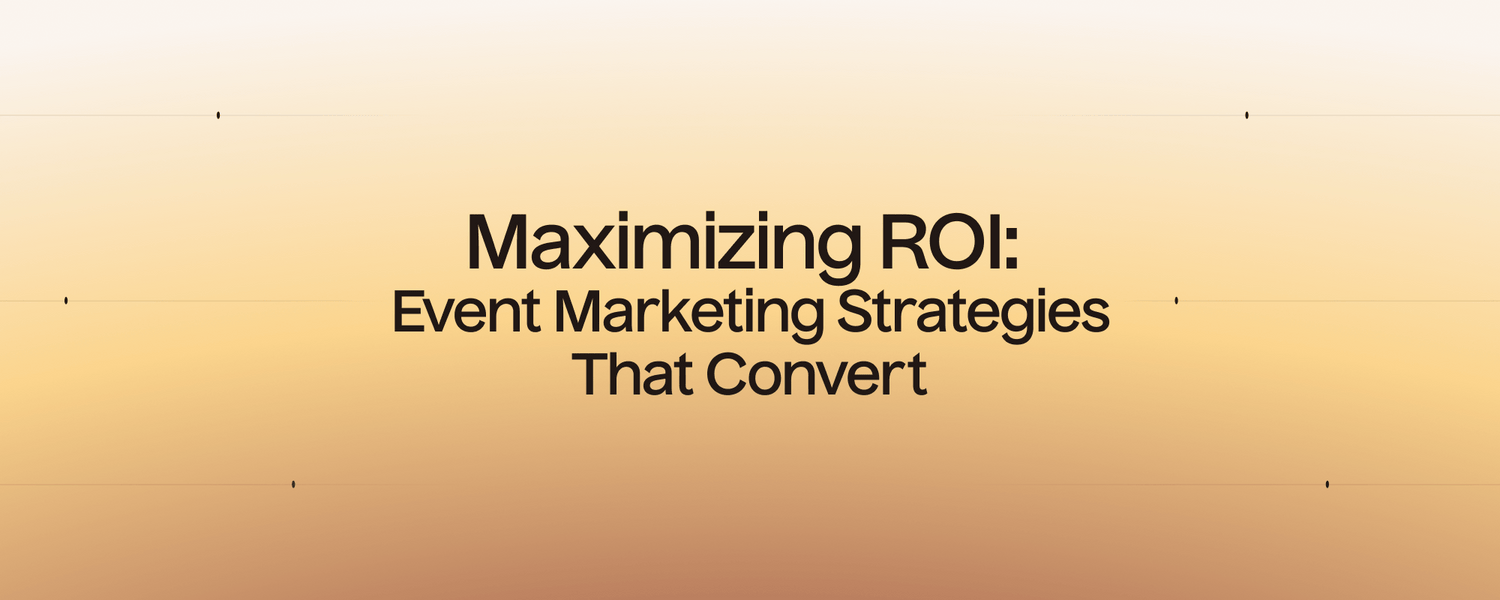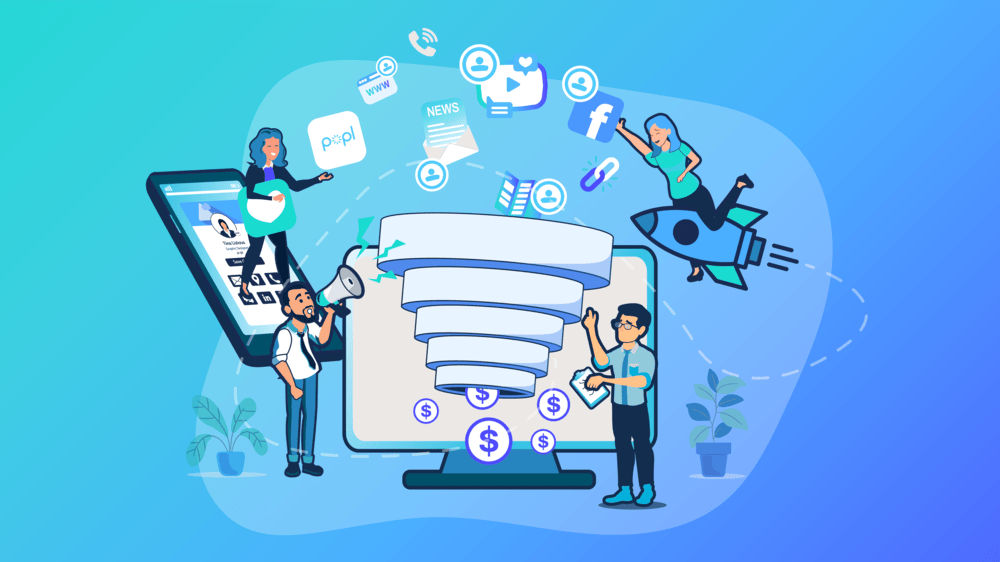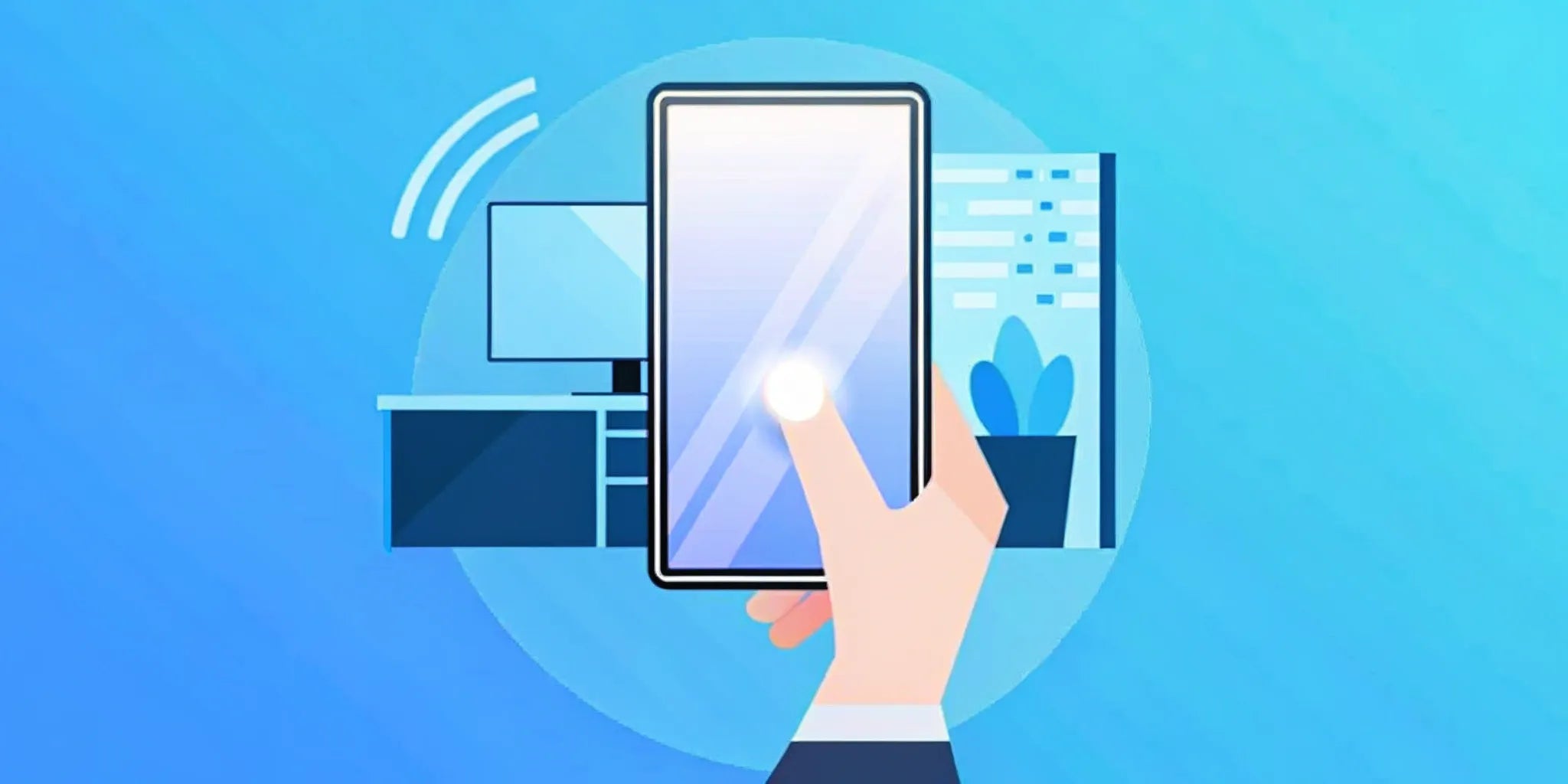Why Event Marketing Matters in Today's Digital World
In a world dominated by digital interactions, there's something irreplaceable about meeting face-to-face. That's why event marketing continues to be one of the most powerful tools in a marketer's arsenal. Whether you're setting up shop at industry conferences, trade shows, or hosting your own events, these in-person touchpoints create memorable experiences that digital channels simply can't replicate.
But here's the thing – event marketing has evolved. It's no longer just about showing up with branded pens and collecting business cards in a fishbowl. Today's successful event marketing strategies leverage technology to maximize every interaction, capture qualified leads efficiently, and seamlessly integrate with your broader marketing ecosystem.
Let's dive into how you can transform your event marketing approach to drive real business results using Popl event lead capture.
The Evolution of Lead Capture at Events
Remember the days of manually entering stacks of business cards into your CRM after an event? Or worse, losing those valuable connections altogether? Those days are thankfully behind us.
The traditional methods of lead capture at events have serious limitations:
- Manual data entry: Time-consuming and prone to errors
- Delayed follow-up: By the time you reach out, prospects have forgotten you
- Incomplete information: Missing crucial contact details
- Poor attribution: Difficulty tracking which events generate ROI
- Disconnected systems: Lead data siloed from your marketing stack
Modern event marketing technology has revolutionized this process. Today's solutions, like the new Popl event lead capture feature, offer real-time event lead capture capability, instant qualification, AI-powered data enrichment, and direct CRM integration – all working seamlessly even in the notoriously unreliable Wi-Fi environments of conference halls.
Key Components of a Successful Event Marketing Strategy
A successful event marketing strategy relies on a clear understanding of target audience needs, defined goals, and a well-structured promotional plan. By aligning every component, from messaging and branding to timing and follow-up.
With these foundations, businesses can maximize engagement and drive meaningful results. Here are the three main components of a successful event marketing strategy.
1. Pre-Event Planning and Promotion
The groundwork for event success happens long before you set up your booth. Effective pre-event planning includes:
- Setting clear, measurable goals for the event
- Identifying and researching key prospects attending
- Creating targeted messaging for different audience segments
- Scheduling meetings with high-value prospects in advance
- Training your team on lead capture processes and technology
- Testing all your tech solutions before the event
2. Seamless Lead Capture During the Event
This is where the rubber meets the road. Your lead capture system should be:
- Fast: Capture leads in seconds to keep conversations flowing
- Comprehensive: Collect all relevant information in one go
- Flexible: Work with or without internet connection
- Universal: Scan badges, business cards, QR codes, and more
- Intelligent: Automatically enrich contact data with AI
- Integrated: Sync directly with your CRM in real-time
3. Strategic Follow-Up Post-Event
The speed and quality of your follow-up can make or break your event ROI:
- Segment leads based on interest and qualification
- Personalize follow-up communications
- Reference specific conversations from the event
- Deliver promised resources promptly
- Track engagement and conversion rates by event
Before we proceed, it's important to point out that success in event lead capturing is not only for extroverts, you can apply the above tips if you are an introvert and get results. We recently wrote an article on introvert networking, check it out.
Comparing Top Event Marketing Technology Solutions
The right technology stack can dramatically improve your event marketing results. Here's how some of the leading solutions compare:
| Feature | Popl | Mobly | Captello | iCapture | HiHello |
|---|---|---|---|---|---|
| Universal Badge Scanning | ✓ | ✓ | Limited | Limited | ✗ |
| Business Card Scanning | ✓ | ✓ | ✓ | ✓ | ✓ |
| AI Data Enrichment | ✓ | ✗ | ✗ | ✗ | ✗ |
| Offline Functionality | ✓ | ✗ | ✗ | ✗ | ✗ |
| Native CRM Integrations | ✓ | ✗ |
✓ |
Limited | Limited |
| Digital Business Cards | ✓ | ✗ | ✗ | ✗ | ✓ |
| Custom Lead Qualification | ✓ | ✓ | ✓ | ✓ | ✗ |
| Real-time Analytics | ✓ | ✗ | ✓ | Limited | ✓ |
| Calendar Integrations | ✓ | ✓ | ✗ | ✗ | ✗ |
Here is an article that compares the Popl event badge scanner with similar products in the market and why we lead the event lead capture scene.
How AI is Transforming Event Lead Capture
Artificial intelligence is revolutionizing event marketing in several key ways:
Automated Data Enrichment
One of the biggest challenges in event lead capture is incomplete information. You might scan a badge that only has a name and company, but lacks email, phone number, or job title. AI-powered enrichment solves this problem by:
- Capturing basic information (name and company)
- Using intelligent algorithms to search for and verify additional contact details
- Automatically populating complete contact records in your CRM
This technology, like what Popl offers, can achieve up to 90% successful email or LinkedIn profile match rates – significantly above industry standards.
Intelligent Lead Qualification
AI can also help qualify leads more effectively by:
- Analyzing company information to determine fit
- Identifying decision-makers and key stakeholders
- Scoring leads based on engagement and interest signals
- Recommending personalized follow-up strategies
Predictive Analytics
Advanced AI systems can analyze historical event data to:
- Predict which types of prospects are most likely to convert
- Recommend optimal staffing levels for different event types
- Suggest the most effective follow-up cadences
- Calculate expected ROI for future events
Overcoming Common Event Marketing Challenges
Even the most well-planned events can face obstacles such as low attendance, budget limitations, or last-minute logistical issues, making it essential to identify and address potential challenges in advance proactively. Here are common event challenges and how to address them.
Poor Internet Connectivity
Conference venues are notorious for spotty Wi-Fi. Modern event marketing platforms address this by:
- Offering fully functional offline modes
- Storing captured leads locally on devices
- Automatically syncing when connectivity is restored
- Providing cellular data backup options
Integration with Existing Systems
Your event marketing technology needs to work seamlessly with your broader marketing stack:
- Direct integration with major CRMs (Salesforce, HubSpot, etc.)
- Custom field mapping to match your specific CRM setup
- Automatic deduplication to prevent duplicate records
- Tagging capabilities for proper attribution and segmentation
Measuring Event ROI
Proving the value of event marketing investments remains challenging. Effective solutions provide:
- Comprehensive analytics dashboards
- Attribution tracking from lead capture to closed deal
- Comparison metrics across different events
- Cost-per-lead and cost-per-acquisition calculations
Case Study: Maximizing Event ROI with Modern Lead Capture
A B2B software company was struggling to justify their event marketing budget. Their traditional lead capture process involved collecting business cards and manually entering data, resulting in:
- Only 60% of leads being entered into their CRM
- An average 72-hour delay before follow-up
- Incomplete contact information for most leads
- Poor conversion rates of just 2% from event lead to opportunity
After implementing an AI-powered lead capture system with real-time CRM integration, they saw dramatic improvements:
- 100% of leads captured were synced to their CRM
- Follow-up time reduced to under 2 hours
- Complete contact records for 90% of leads
- Conversion rates increased to 8% from event lead to opportunity
- 3.5x improvement in event marketing ROI
Best Practices for Event Marketing Success

Like anything else in business, success in event marketing is hinged on how well you plan for the big and the tools you use to capture leads. Here are four proven event marketing success strategies you can use to get maximum ROI from your next event.
1. Integrate Digital and Physical Experiences
Create a cohesive experience that bridges digital and physical interactions:
- Use QR codes to direct booth visitors to digital resources
- Leverage digital business cards for seamless contact exchange
- Incorporate interactive digital elements in your physical booth
- Continue the conversation across digital channels post-event
2. Prioritize Speed to Lead
The faster you follow up with event leads, the higher your conversion rates:
- Use real-time lead capture and qualification
- Set up automated but personalized initial follow-ups
- Assign leads to sales reps while the event is still happening
- Provide sales teams with context from the booth conversation
3. Focus on Quality Over Quantity
Not all event leads are created equal:
- Use custom qualification questions at the point of capture
- Implement lead scoring based on fit and interest
- Prioritize follow-up based on qualification
- Track conversion rates by lead source and qualification level
4. Measure What Matters
Move beyond vanity metrics to focus on business impact:
- Track the entire journey from event lead to closed deal
- Calculate cost per qualified lead for each event
- Measure influence on deal velocity and size
- Compare ROI across different event types and formats
Social media is a marketing powerhouse for events. Marley Jaxx, a professional event marketer, offers actionable tips on how to market your event on social media.
The Future of Event Marketing
Event marketing remains one of the most effective channels for building relationships and driving business growth. By embracing modern technology and strategies, marketers can transform their event programs from expensive brand exercises into predictable revenue generators.
The most successful event marketers are those who seamlessly blend the irreplaceable human element of in-person interactions with the efficiency and intelligence of digital tools. They create memorable experiences at the booth, capture and enrich lead data automatically, and follow up with speed and personalization.
As we look to the future, AI will continue to enhance event marketing capabilities, making lead capture more intelligent, follow-up more personalized, and ROI more measurable. The companies that embrace these innovations will gain a significant competitive advantage in converting event interactions into lasting customer relationships.
Ready to transform your event marketing strategy? Start by evaluating your current lead capture process, identifying the gaps, and exploring how our event lead capture feature that can help you maximize every in-person interaction.
















